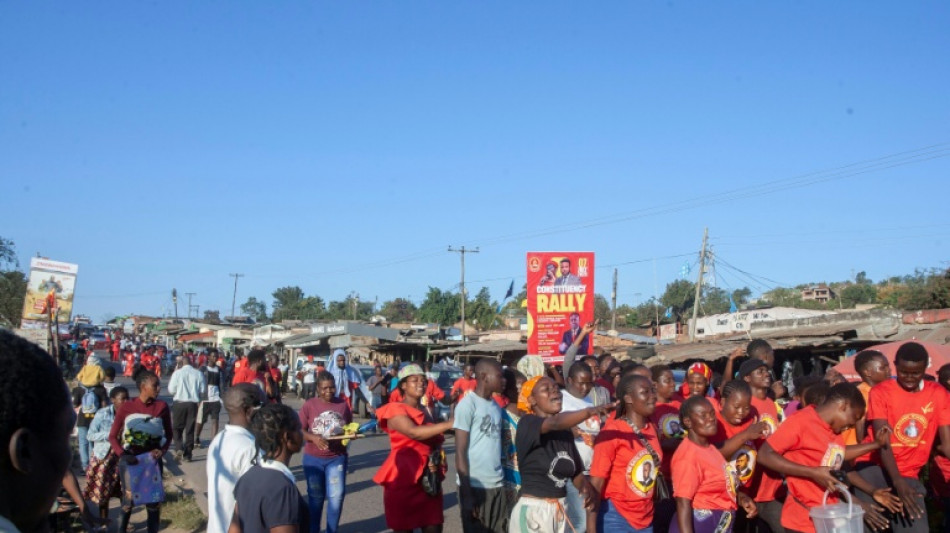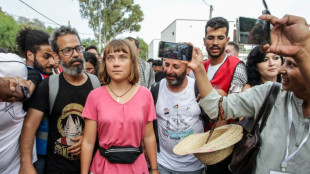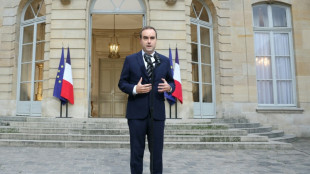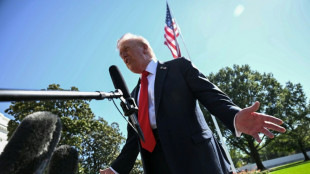

Malawi's restless youth challenged to vote in September polls
At a rally of pounding drums and ululating women, star Malawian rapper Fredokiss urged young people to vote in next month's elections despite their disenchantment with the government and the choice of main presidential candidates, all aged over 70.
More than half of the population of the impoverished central African country is under 35 and the turnout on September 16 of young voters –- who made up 54 percent of registered voters in the 2019 election -- is seen as a potential game-changer.
"Young people have the numbers, we have the voice," the 37-year-old rapper-turned-politician told AFP on the sidelines of the recent event in the southern city of Blantyre, a part-rally and part-street party held in a swirl of the red colours of his United Transformation Movement (UTM).
"We are the ones who will choose the next president -- whether we like them or not -- and the next MPs and councillors," said Fredokiss, whose real name is Fredo Penjani Kalua.
But with campaigning in full swing, many young voters told AFP that they were uninspired by the familiar faces running to unseat President Lazarus Chakwera, 70, and his Malawi Congress Party, which has been accused of mismanagement since regaining power in 2020.
Chakwera took office following 2020 elections after the previous year's poll was nullified over charges of widespread irregularities.
His main challengers are two former presidents: Peter Mutharika, 85, of the Democratic Progressive Party, and People's Party candidate Joyce Banda, 74.
At 51, former central bank governor Dalitso Kabambe -- candidate for another of the major parties, the UTM -- is a spring chicken in comparison.
"This is our country, our home. We have to make it better," said Fredokiss, who is running for the second time for a seat in parliament after losing out in 2019.
Nearly three-quarters of Malawi's more than 21 million people live in extreme poverty, according to the World Bank.
Months of inflation nearing 30 percent and crippling fuel shortages have made the economy a key issue in the largely rural and underdeveloped country, which is rich in natural resources but heavily indebted and dependent on foreign aid.
Fredokiss uses his music to denounce nepotism, tribalism and cronyism in Malawian politics, and to criticise the exploitation of local labour by foreign businesses and the crushing weight of youth unemployment.
"Governments and politicians are not providing solutions for young people: jobs, business opportunities, real hope," Fredokiss told AFP. "That's why many are disgruntled. But this election should be the start, not the end, of our action."
- Same old -
"It's the same old faces with the same tired promises," said a 30-year-old shopkeeper in the capital, Lilongwe, who would only give her name as Sandra.
"I registered hoping for fresh candidates with real ideas, but none have shown up -— so why waste my vote?"
"None of the candidates make sense to me, so why pretend my vote would?" said Robert Chimtolo, 30, who runs the Maphunziro youth empowerment non-profit organisation.
Sixty percent of the under-35 electorate turned out at the 2019 vote compared to 80 percent of older voters, according to election commission figures.
Low youth participation is a structural issue, according to Charles Kajoloweka, head of the Youth and Society NGO.
"Youth wings in political parties are often dysfunctional, unfunded and lack training opportunities," he said. "Politics has become a marketplace for the rich, not a contest of ideas."
To help politicians connect with the young electorate, civil society groups drafted a Malawi Youth Manifesto of priorities from climate action to digital skills.
The main priorities for Malawi's younger people are job creation (26 percent), education (25 percent) and access to business loans (23 percent), according to an Afrobarometer survey of 1,200 people in August last year.
University of Malawi politics lecturer Boniface Dulani said that while younger voters were disillusioned, they were not disengaged, as shown by a strong turnout at demonstrations in February against rising living costs -- the biggest protest in the capital Lilongwe in years.
"The problem is... rather that the traditional way of doing politics is not connecting well with the young generation," he said.
Youth-led post-election protests rocked Kenya, Mozambique and Senegal last year while Malawi has seen a series of small demonstrations this year over the economic crisis.
D.Marques--LiLuX


